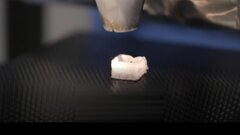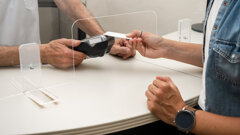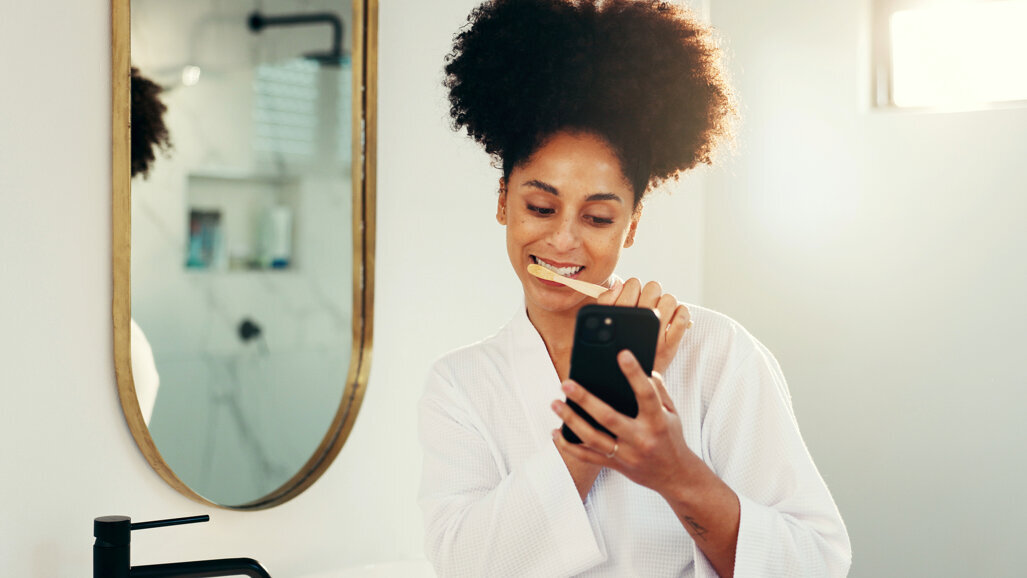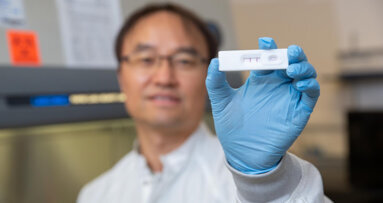CARDIFF, Wales: As humanity continues to lean into artificial intelligence (AI) and digital technologies for all manner of basic life challenges, the realm of an individual’s oral healthcare too is evolving. While the dentist’s office remains the definitive space for diagnosis and treatment, mobile apps are being developed to offer patients supplementary support. TestMyTeeth, for example, is an AI-powered app for at-home plaque screening. A new study by researchers in Wales has cast a critical yet constructive spotlight on the app, showing that, while it has potential to support preventive oral healthcare, it falls short in user friendliness and requires significant technical improvements.
The study assessed the usability and user experience of TestMyTeeth by engaging 132 participants across varied age groups and educational backgrounds. Despite the app’s promise as a tool for self-monitoring oral health, its average System Usability Scale score was 56.2—categorised as “marginal” usability. A benchmark score of 68 is typically required to denote acceptable performance. The app’s scores were significantly lower than those reported for another AI-powered mobile app designed to assist in the detection of early childhood caries, AICaries.
Participants were asked to use TestMyTeeth, which uses a smartphone’s camera and AI to detect plaque, and complete a structured questionnaire. While 54.6% said that they would consider using the app frequently, only 41.6% found it easy to use. Notably, 50% of respondents anticipated needing technical support.
One of the main barriers was difficulty in capturing clear intra-oral images—particularly of the posterior teeth. Many users struggled with focus and positioning, leading to unreliable results and diminished confidence in the technology. While some praised the empowerment that came with self-monitoring, others expressed concern about the accuracy of AI assessments without professional oversight, a finding echoed in a related study recently reported on by Dental Tribune International. Several participants in the Wales study voiced unease about relying on AI diagnostics alone, fearing missed pathology or misinterpretation. The study’s authors recommend integrating professional input—such as remote dental consultations—to bolster confidence and accuracy.
No significant differences were found across demographic groups, suggesting that the app’s challenges are universal and not tied to age, education or sex. Participants offered constructive suggestions, such as integrating augmented reality for camera guidance, a selfie mode and more intuitive user instructions.
The findings highlight the fine balance digital dentistry must strike between innovation and accessibility. While TestMyTeeth holds substantial promise as a patient-led oral health tool, improving its usability, guidance system and reliability will be key to ensuring long-term engagement and clinical relevance.
The study, titled “Evaluating user perceptions and usability of an AI-powered smartphone application for at-home dental plaque screening”, was published on 11 July 2025 in the British Dental Journal.
Topics:
Tags:
MEDFORD, Mass., US: Stress can present as a wide range of physical, emotional and social symptoms, such as irritability, headache, anxiety and elevated ...
Current methods of oral hygiene rely on old technology that requires repeated instruction and dexterity to master. Often, patients are unable to achieve ...
CINCINNATI, US: The prevalence of gingivitis continues to be a significant public health concern, and barriers such as limited access to healthcare and high...
LONDON, UK: According to Western folklore, children with a wiggly primary tooth can look forward to a visit from the tooth fairy, making an otherwise ...
Live webinar
Tue. 3 March 2026
11:00 am EST (New York)
Dr. Omar Lugo Cirujano Maxilofacial
Live webinar
Tue. 3 March 2026
8:00 pm EST (New York)
Dr. Vasiliki Maseli DDS, MS, EdM
Live webinar
Wed. 4 March 2026
12:00 pm EST (New York)
Munther Sulieman LDS RCS (Eng) BDS (Lond) MSc PhD
Live webinar
Wed. 4 March 2026
1:00 pm EST (New York)
Live webinar
Fri. 6 March 2026
3:00 am EST (New York)
Live webinar
Tue. 10 March 2026
4:00 am EST (New York)
Assoc. Prof. Aaron Davis, Prof. Sarah Baker
Live webinar
Tue. 10 March 2026
8:00 pm EST (New York)
Dr. Vasiliki Maseli DDS, MS, EdM



 Austria / Österreich
Austria / Österreich
 Bosnia and Herzegovina / Босна и Херцеговина
Bosnia and Herzegovina / Босна и Херцеговина
 Bulgaria / България
Bulgaria / България
 Croatia / Hrvatska
Croatia / Hrvatska
 Czech Republic & Slovakia / Česká republika & Slovensko
Czech Republic & Slovakia / Česká republika & Slovensko
 France / France
France / France
 Germany / Deutschland
Germany / Deutschland
 Greece / ΕΛΛΑΔΑ
Greece / ΕΛΛΑΔΑ
 Hungary / Hungary
Hungary / Hungary
 Italy / Italia
Italy / Italia
 Netherlands / Nederland
Netherlands / Nederland
 Nordic / Nordic
Nordic / Nordic
 Poland / Polska
Poland / Polska
 Portugal / Portugal
Portugal / Portugal
 Romania & Moldova / România & Moldova
Romania & Moldova / România & Moldova
 Slovenia / Slovenija
Slovenia / Slovenija
 Serbia & Montenegro / Србија и Црна Гора
Serbia & Montenegro / Србија и Црна Гора
 Spain / España
Spain / España
 Switzerland / Schweiz
Switzerland / Schweiz
 Turkey / Türkiye
Turkey / Türkiye
 UK & Ireland / UK & Ireland
UK & Ireland / UK & Ireland
 Brazil / Brasil
Brazil / Brasil
 Canada / Canada
Canada / Canada
 Latin America / Latinoamérica
Latin America / Latinoamérica
 USA / USA
USA / USA
 China / 中国
China / 中国
 India / भारत गणराज्य
India / भारत गणराज्य
 Pakistan / Pākistān
Pakistan / Pākistān
 Vietnam / Việt Nam
Vietnam / Việt Nam
 ASEAN / ASEAN
ASEAN / ASEAN
 Israel / מְדִינַת יִשְׂרָאֵל
Israel / מְדִינַת יִשְׂרָאֵל
 Algeria, Morocco & Tunisia / الجزائر والمغرب وتونس
Algeria, Morocco & Tunisia / الجزائر والمغرب وتونس
 Middle East / Middle East
Middle East / Middle East





































To post a reply please login or register